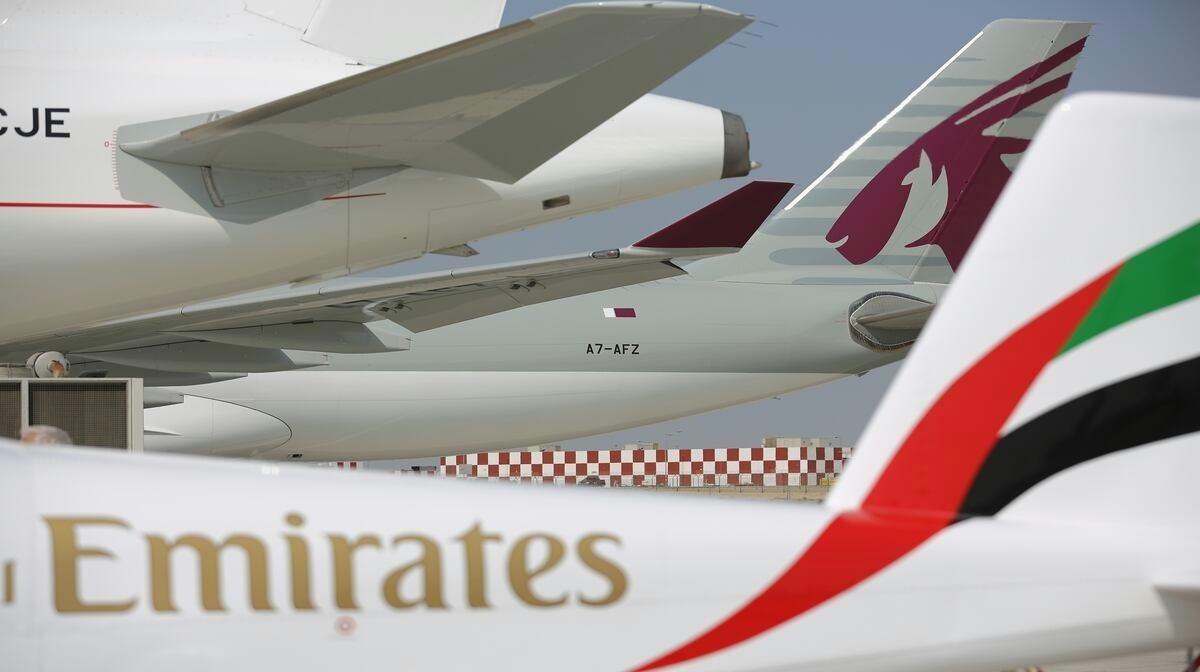AeroGenie — Il tuo copilota intelligente.
Tendenze
Categories
Emirates Cancels Order for Airbus A350 Jets

Emirates Cancels Order for Airbus A350 Jets
Emirates has officially cancelled its longstanding order for Airbus A350 aircraft, signaling a notable shift in the Dubai-based carrier’s fleet strategy and prompting widespread speculation within the aviation sector. This decision concludes nearly two decades of fluctuating commitments to the A350 program, during which Emirates alternated between placing, withdrawing, and reconsidering orders for the widebody jets.
A History of Changing Commitments
The airline’s initial engagement with the Airbus A350 dates back to the 2007 Dubai Airshow, where Emirates placed a substantial order for 70 A350s, including 50 A350-900s and a commitment to the larger A350-1000 variant. Valued at approximately $35 billion, this agreement also encompassed additional Airbus A380s, reflecting Emirates’ broader strategy to develop a high-capacity, long-haul fleet that would support Dubai’s emergence as a major global aviation hub.
Under the terms of the original contract, Emirates secured delivery slots well in advance, with the first A350s expected to enter service in 2014. This order was considered a cornerstone of the airline’s ambitious expansion throughout the 2000s and 2010s, helping to cement its position as a leading carrier in the Middle East and on the international stage.
The Cancellation and Its Implications
In 2014, the year deliveries were scheduled to commence, Emirates announced the cancellation of its entire A350 order. The airline attributed this decision to a comprehensive review of its fleet requirements, a standard practice among carriers seeking to optimize operations in response to evolving market conditions. Industry sources, including Bloomberg, have suggested that revised delivery schedules may have influenced the decision, potentially disrupting Emirates’ growth plans during a critical period.
This cancellation represented a significant setback for Airbus, reducing the A350’s order backlog at a time when the aircraft was gaining global momentum. It also highlighted the challenges faced by manufacturers in adhering to delivery commitments, particularly as airlines place increasing emphasis on production reliability and operational flexibility.
Market Reactions and Strategic Shifts
Emirates’ withdrawal from the A350 program has elicited notable reactions across the market. Airbus may be compelled to adjust its strategy, potentially placing greater emphasis on the A350-1000 variant, which continues to attract new orders. The situation also draws attention to Airbus’s production timelines, especially as Boeing contends with delays in its 777X program.
For Emirates, the cancellation is likely to accelerate the integration of the Boeing 777X into its fleet, an aircraft in which the airline has already made significant investments. Industry analysts anticipate that this development could lead to negotiations over compensation or revised delivery schedules, as Emirates endeavors to sustain its competitive advantage.
Meanwhile, competitors may seek to capitalize on concerns regarding Airbus’s delivery performance, intensifying their marketing efforts within the widebody aircraft segment.
Looking Ahead
As Emirates reconfigures its fleet strategy, the cancellation of the A350 order underscores the fluid and competitive nature of the global aviation market. The responses of Airbus and its rivals will be closely monitored as they navigate shifting airline priorities and ongoing challenges related to aircraft production and delivery.

Emirates Unveils Cabin Design for New Boeing 777X

Eighteen Years On, the Airbus A380 Remains Central to a $34 Billion Airline

How a boom in luxury airline seats is slowing down jet deliveries

Navitaire Outage Attributed to Planned Maintenance

DigiYatra Debuts Outside Aviation at India AI Impact Summit

Vietnam Orders Strengthen Boeing’s Commercial Outlook

Airbus Signals Uncertainty Over Future A400M Orders

JobsOhio Awards $2 Million Grant to Hartzell Propeller for Innovation Center

Collins Aerospace Tests Sidekick Autonomy Software on YFQ-42A for U.S. Air Force CCA Program

How the Airbus A350-1000 Compares to the Boeing 777
